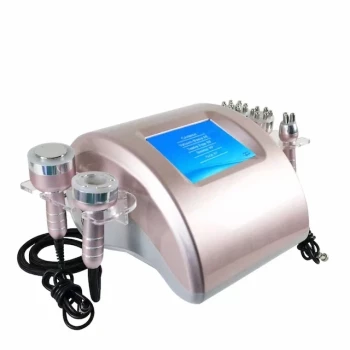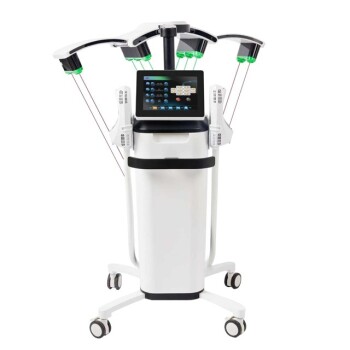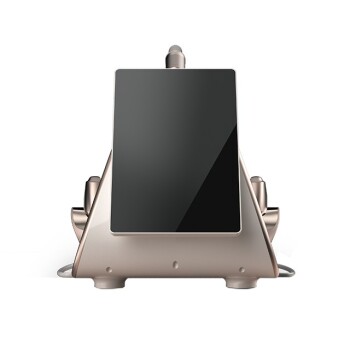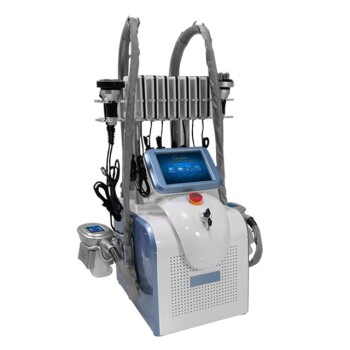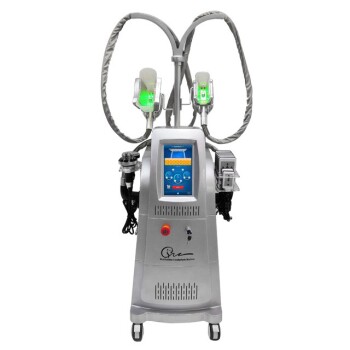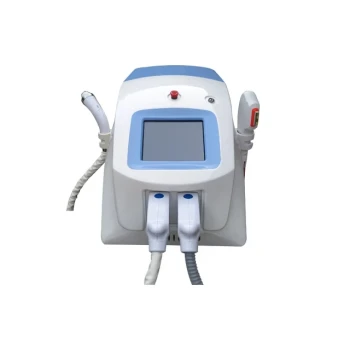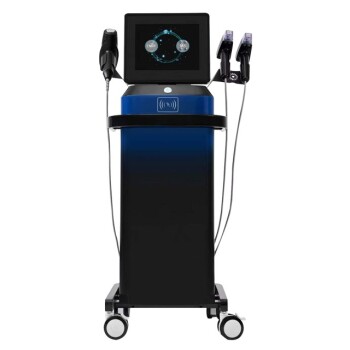Under no circumstances should an ultrasonic cavitation machine be used by individuals with certain medical conditions, electronic implants, or during pregnancy. The treatment is also strictly forbidden on areas with broken, irritated, or infected skin to prevent further tissue damage and serious health risks.
While ultrasonic cavitation is considered non-invasive, its underlying technology uses powerful sound waves that can pose significant risks to individuals with specific health vulnerabilities. Prioritizing a thorough health screening over the desire for aesthetic results is non-negotiable for ensuring safety.
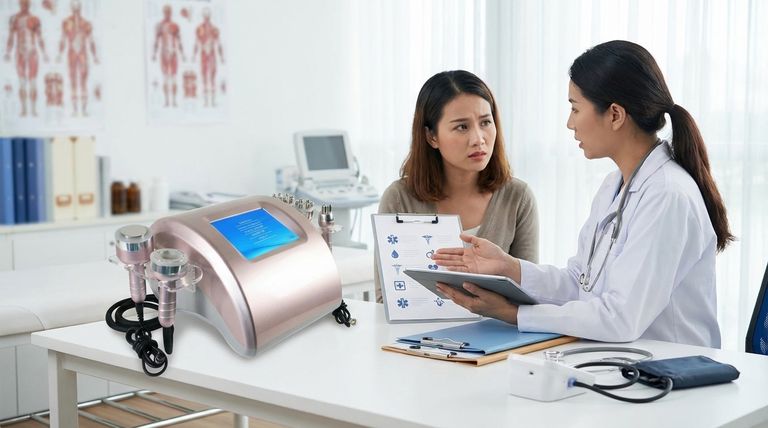
Absolute Contraindications: When to Avoid Treatment Entirely
Certain systemic health conditions or life stages make ultrasonic cavitation an unacceptable risk. The energy emitted by the device can have unforeseen and dangerous effects on both the user and, in some cases, a developing fetus.
During Pregnancy and Breastfeeding
The effects of ultrasonic waves on fetal development have not been studied, and the risk is unknown but potentially severe. The procedure should be avoided entirely during pregnancy and while breastfeeding.
Presence of Electronic or Metal Implants
The ultrasound energy can interfere with the function of electronic devices like pacemakers, defibrillators, or cochlear implants, creating a life-threatening situation. It can also cause metallic implants, such as copper IUDs, surgical pins, or plates, to heat up, potentially causing internal burns.
History of Cancer
Individuals with an active or recent history of cancer should not undergo this treatment. There is a theoretical risk that the cellular energy and increased lymphatic drainage could stimulate the growth or spread of malignant cells.
Compromised Organ Function
The procedure works by breaking down fat cells, releasing their contents into the bloodstream. This material must be processed by the liver and eliminated by the kidneys. Individuals with liver or kidney disease cannot handle this metabolic load, leading to potential organ damage.
Significant Systemic Diseases
Conditions like uncontrolled diabetes, epilepsy, severe heart disease, or autoimmune disorders that affect healing and tissue response are firm contraindications. The stress of the procedure can exacerbate these conditions.
Situational Contraindications: Areas and Conditions to Avoid
Even for a healthy individual, there are specific circumstances and body areas where the treatment must be avoided to prevent localized harm.
Compromised Skin Integrity
This is a critical and absolute rule. Using the machine over skin with cuts, open sores, infections, severe acne, rashes, or conditions like eczema and psoriasis can drive bacteria deeper into the tissue and worsen the condition significantly. The reference material rightly points out this increases the risk of infection and tissue damage.
Over or Near Sensitive Structures
The device should never be used on the head, face, neck (especially over the thyroid gland), chest (near the heart), or genitals. These areas contain sensitive organs, glands, and major blood vessels that are not intended to be exposed to this type of focused energy.
During Menstruation
While not an absolute danger, applying the treatment to the abdomen during menstruation can often increase cramping and blood flow. It is generally advised to schedule sessions to avoid this period.
Understanding the Underlying Risks
The contraindications are not arbitrary; they are based on the physical principles of how ultrasonic cavitation works and its effects on the body's systems.
The Impact of Ultrasound Energy
The machine generates focused, low-frequency sound waves that create vibrations within the tissue. This energy is designed to rupture fat cells, but it can unintentionally affect other structures, from delicate implants to sensitive organs, which is why their proximity is a key concern.
The Metabolic Burden
Successfully breaking down fat is only half the process. Your body must then manage and excrete these liberated triglycerides. A healthy lymphatic system, liver, and kidneys are essential to this process. If any part of this system is already compromised, the treatment adds a burden it cannot handle.
The Need for Full Disclosure
A qualified technician will require a detailed medical history before proceeding. Withholding information about your health conditions, medications, or implants can lead to severe adverse effects. Honesty is your primary safety tool.
Making a Safe Decision
Your approach to this procedure should be guided by an unwavering commitment to health and safety above all else.
- If you have any active medical condition or implant: You must consult with your primary physician to get explicit clearance before considering this treatment.
- If you are pregnant, breastfeeding, or suspect you might be: You must avoid this procedure entirely until cleared by your doctor well after delivery and weaning.
- If you have any localized skin issue (like a cut, rash, or infection): You must postpone treatment on that specific area until it has completely and visibly healed.
Ultimately, your safety depends on a clear understanding of these risks and transparent communication with a qualified professional.
Summary Table:
| Contraindication Category | Key Examples | Primary Risk |
|---|---|---|
| Absolute (Systemic) | Pregnancy, pacemakers, active cancer, liver/kidney disease | Life-threatening complications, organ stress |
| Situational (Localized) | Broken skin, infections, neck/face areas, menstruation | Tissue damage, infection, increased discomfort |
Prioritize client safety with professional-grade equipment from BELIS.
As a specialist in medical aesthetic equipment for clinics and premium salons, BELIS provides devices engineered with advanced safety protocols. Ensure your treatments are both effective and risk-free.
Contact our experts today for a consultation on our ultrasonic cavitation machines and comprehensive safety support.
Visual Guide
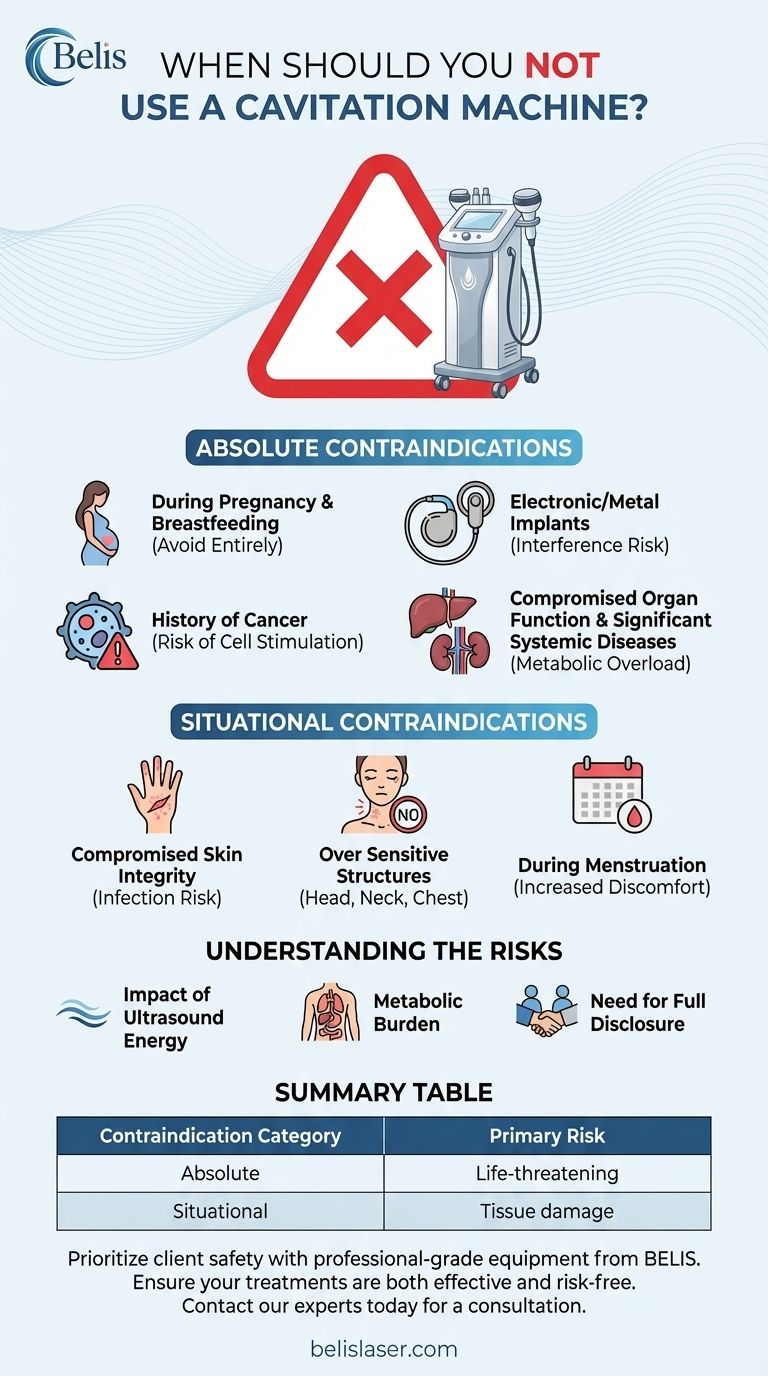
Related Products
- Ultrasonic Cavitation Radiofrecuency Machine for Body Slimming
- EMSlim Body Sculpting Machine EMS Body Slimming Machine
- Cryolipolysis Fat Freezing Machine Ultrasonic Cavitation Fat Reducing Device
- EMSlim RG Laser Body Sculpting and Slimming Machine
- Cryolipolysis Fat Freezing Machine and Ultrasonic Cavitation Device
People Also Ask
- What is the recommended pre-treatment advice for Ultrasonic Cavitation? Maximize Fat Loss Results Safely
- How much does ultrasonic cavitation typically cost? Your Guide to Professional Pricing and ROI
- What are the primary benefits of ultrasonic cavitation? Achieve Non-Surgical Body Contouring and Precision Fat Loss
- How long does it typically take to see the results of ultrasonic cavitation? Get Your Body Goals in 6 to 12 Weeks
- For what conditions is ultrasonic vacuum cavitation considered an ideal solution? Expert Body Contouring Guide
